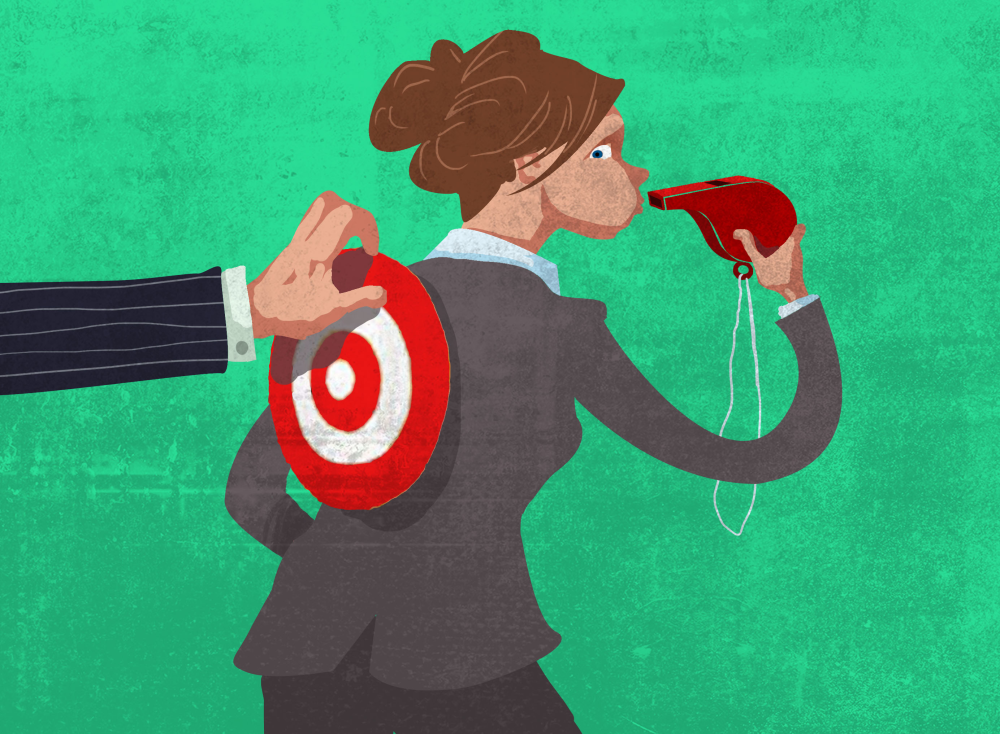Coaching during Covid-19

People need help dealing with CHANGE now more than ever!
There can be no question that Covid and the various stages of lockdown have had a major impact on all our lives, socially, personally and in the way we conduct business. Many people have had to create a whole new working environment for themselves, which has in some cases involved working from home or remote locations for extended periods of time. Clearly this has impacted on the way business has been transacted and several of us have had to get used to a whole new world of work. Perhaps the biggest impact for most people, has been around the issue of communication. Zoom and meetings over teams has replaced the traditional face-to-face get-together in a breakaway room or around a boardroom table. On the social level, under Covid it has no longer been possible to pop into a colleague’s office to sort out an issue or just for a chat. Smoke breaks, coffee and tea breaks now tend to happen by yourself and the joy of a quick chat around the vending machine or watercooler down the passage has disappeared. Clearly the curtailment of normal office routine and the social interactions that go with it, have affected individuals differently. Many people speak openly of missing the social interactions of the workplace which previously everybody took for granted. Some people, however, prefer to work alone and enjoy being able to work without the distractions of the office environment.
Many people’s ideas about coaching have also been questioned and come up for review because of Covid. Coaching as we know is a very particular kind of communication tool, which in most people’s frame of reference is conducted on a one-on-one basis between the coach and the “coachee”. What many people do not realise however is that in much of the world coaching is conducted less and less on a face-to-face basis. Many coaches coach very successfully via electronic means, such as zoom in team meetings, or simply using telephones. I have known coaches coach their clients while training for sports, conducting activities such as gardening, going for long walks or even sharing a meal or a cup of coffee. The success of the coaching process is therefore not dependent on the communication method employed, but rather the content and the effectiveness of the connection with the client. Although many coaches still prefer an initial meeting with a client to take place on a face-to-face basis. This is by no means a pre-requisite during my coaching training, some of my best sessions were conducted with coaches across the Atlantic who I had never met.
Given the social issues and impact of isolation described above, which has come about because of the Covid 19 pandemic. It may well be that many people who have been affected by social isolation and lack of communication will benefit more now than ever from a coaching programme. A good coach will be well placed to understand and reflect to the clients on any issues and fears that Covid and particularly Covid isolation have caused. Coaches will also be well placed to assist in addressing issues that people will have when it comes to the reintegrating into teams and workplaces when people are required to return to work. I can also see a role for coaches in terms of the onboarding process for new staff members, who are perhaps joining an organisation for the first time and may from day one be required to work from home and never actually meet some of their colleagues and co-workers face-to-face.
Coaching therefore could fill the gap in communication and socialisation which Covid 19 has brought about in our various workplaces. It has been said that unless we change certain of our behaviours, we can never expect different outcomes, coaching to a large extent operates on this premise and encourages people to make changes that they have always wanted to. Based on this discussion it appears to me that coaching could fulfil a crucial role in assisting people deal with the changes which Covid has already brought about in their lives and help them deal with the challenges and realignment that is bound to follow as the world comes to grips with post Covid realities.
EMBRACING ETHICAL LEADERSHIP: A CALL TO HR TO HIRE WHISTLEBLOWERS.

In the realm of Human Resources, we often find ourselves at the crossroads of talent acquisition, deciphering who enters our organizations and who doesn’t. As a veteran HR practitioner, I must confess to being part of the status quo, often acting as a gatekeeper in the recruitment process. It’s time we address a crucial aspect of hiring that’s often overlooked – the opportunity to bring Whistleblowers into our teams.
A Missed Opportunity for Ethical Talent.
How many times have we, as HR professionals, sifted through CV’s adhering strictly to job specifications, only to overlook potential gems labelled as troublemakers? Guilty as charged, I have been there. The common practice of discarding candidates based on job-hopping or rumours from previous employers can inadvertently exclude individuals who have displayed immense strength, honesty, and courage as Whistleblowers.
Breaking the Silence: My Recent Endeavours.
Recently, I embarked on a mission to place Whistleblowers within companies where I’ve cultivated long-standing relationships. To my dismay, the reactions were far from what I expected. Conversations about whistleblowers initially went well until the pivotal question arose – would you hire a whistleblower? The responses were telling – hesitation, followed by excuses citing concerns about team dynamics, trust issues, and age-old adage that where there’s smoke, there’s fire.
Debunking the Myths: A Call to Action.
Its disheartening that even companies championing transparency shy away from hiring those who have bravely exposed illegal and unethical behaviour. Whistleblowers, despite winning legal battles against former employers, find themselves blacklisted, struggling to secure employment. The societal, psychological, and physical toll on these individuals is profound, and its time for HR to challenge the status quo.
The Challenge to HR: Embrace Whistleblowers.
So, here’s the challenge to HR professionals everywhere – if you genuinely seek honest, law-abiding individuals aligned with your company’s ethics and integrity policies, consider welcoming Whistleblowers into your talent pool. Yes, their stories must be verified, but isn’t that a standard practice for all hires?
My suggestion to the sceptics among us is simple – interview Whistleblowers, give them a chance. You might be surprised by the resilience, integrity, and unique perspectives they bring to the table. It’s time to redefine our hiring norms and in doing so, foster a workplace culture that embraces ethical leadership.
Doug Armstrong
Director TAU Human Resource
Whistleblower: What’s in a name? – Everything

When it comes to whistleblowing it seems that it is all about the name or at least the label. Some time ago while looking for reasons, as to why it is so hard to get employment as a whistle blower, a topic for another day. It struck me that I did not really have a clear definition of whistleblowing. So, I Googled it and found the Whistleblower house website which described whistleblowers as courageous and selfless people who expose corruption and wrong doing without regard for what may befall them. When I closed their site, I went back to my original search and one of the options that was still there was synonyms for the term whistleblower. I clicked on the link and to my surprise a site came up with no less than 69 alternatives and nick names for the term whistleblower. Just having read the definition on the Whistleblower site the list of synonyms that appeared was somewhat disconcerting. It started with words such as snitch, grass, tattletale, gossiper, informer and also included phrases such as “snitches get stitches”. I became more and more fascinated by the bizarre juxta position of the whistle blower site definition and the synonym from the search I had conducted.
What was more troubling, was that I read the list of antonyms for whistle blower, these were quite rightly I thought negative terms and the words listed included collaborator and even Quisling. Vidkun Quisling I remembered from my World War II history, as being the Norwegian defence minister who sold out and collaborated with the Nazi’s during the war. He was later hanged for his actions, and was clearly the very opposite of a whistle blower. The term Quisling clearly means traitor, collaborator is a far more neutral term and is really only defined by the context in which it is used. A musical or theatrical collaboration can be a good thing while we can all agree collaborating with the Nazi’s in WWII was a bad thing. At this point though it does become very confusing when depending on which synonym or antonym you chose you can describe a whistleblower as an informer (synonym) and the opposite of whistleblower (antonym) as a collaborator!
Getting more interested, I continued my google search, and came across an article by a man named David Klein, who quoted t he definition of whistleblower from the Miriam-Webster Dictionary as: one who reveals something covert or who informs against another.
Klein in his article quite rightly criticises the dictionary definition for omitting and being devoid of anything which supports the courage, ethics, morality or the exposing of wrongdoing, all of which are central to whistle blowing. In reaching his conclusions, Klein like me had followed a similar process and sourced numerous unsavoury synonyms and derogatory terms to describe whistleblowing and came to the conclusion that as a society it seems that “we love to hate whistleblowers.”
The reason for this state of affairs according to Klein, for which I think we can all have some sympathy for, if not agree with, is that we have been socialised into not being telltales and rather take the route of sticking up against authority to protect our own. There is clearly logic in this argument when people are faced with injustice, ineffective and corrupt state institutions, but I would venture to add that if this is true of our society, we must be in deeper trouble than we think.
This brings me to Klein’s other point, related to the first where he asks the question as to where we would be without whistleblowers. Klein believes, and those of us who have experienced living in South Africa for the last few years would have to agree, that corruption would run riot in the corporate world and in government without whistleblowers.
Klein therefore suggests that the English language needs a better word for whistleblowers, a term free from the negative connotations of stool pigeons, snitches, informants and schoolboy notions of not ratting out your friends. If we desire a return to ethical business and clean government there is no room for covering up fraud and corruption, or turning a blind eye, this must all end and we need to see wrong doing for what it is and realise the consequences if we don’t act to stop the rot.
Once we clearly understand the nature and value of whistleblowing the problem of what to call genuine “Whistleblowers” remains! It’s too late to go back to the original 19 th century understanding of whistleblower, where the term was used to describe one who blew a whistle to warn people of danger or criminal activity, a real noble idea. What we need to do is to change the understanding of what whistleblowing means and change the narrative around whistleblowing, and rebrand it to use marketing parlance. The term we choose needs to have impact and be something that people recognise and can relate to, at the same time we need pay tribute to our countries genuine whistleblowers who have made and will continue to make a difference.
Klein believes we should change the word whistleblower to something like “Light Caster”- meaning someone who throws light on or exposes wrong doing. A good suggestion, but something with more gravitas and impact is required. Why not make use of this opportunity to get the point across really forcefully and honour a brave and courageous person like Babita Deokaran. As a society we should be so outraged by what happened to her that we never want to forget what she did. Why therefore do we not pay tribute to Babita by turning her name into a noun, and in so doing create a new eponym (a person (real or fictitious) whose name has become identified with a particular object or activity), in the South African lexicon. In the same way the Norwegians did with the name Quisling, to remember a traitor, because they never wanted to forget the calamitous harm he caused to the country. As South Africans we can no longer wait for some kind of official recognition for Ms Deokara. My fear is that given the passage of time since her murder, and as with most things in this country, officialdom will simply do nothing, particularly now that the killers have been sentenced and the kingpins yet to be apprehended. Whistleblowers need support from the public to change perceptions and we all need to remember the ultimate sacrifice and honour a true hero of our country. Why not therefore replace the term whistleblower with Deokaran, defined as one who exposes corruption and wrongdoing in corporations and government, disregarding any potential harm to themselves in the interests of creating a more just society for all.
